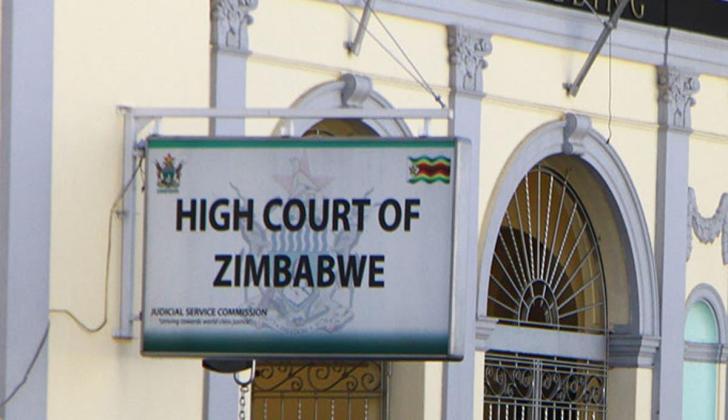News / National
Landmark birth certificate ruling in Zimbabwe
16 hrs ago | Views

The High Court has nullified the re-registration of a birth certificate for a child born out of wedlock, ruling that the move was unlawful and posed a threat to the legal rights of legitimate heirs to an estate.
The court ordered the Registrar-General to strike the birth certificate from official records after finding it to have been issued in contravention of the Births and Deaths Registration Act [Chapter 5:02].
The case centred on a long-running inheritance dispute involving the late Lazarus Mkudu, whose estate became the subject of contestation after Ruvimbo Manyonda, the first respondent, obtained a birth certificate nearly 20 years after Mkudu's death, listing him as her father.
Teresiah Mkudu, the applicant and a relative of the deceased, challenged the validity of Ruvimbo's birth certificate, arguing it was illegally re-registered since Mkudu and Ruvimbo's mother were never married — a requirement under the Act for legitimising births post-registration.
Teresiah contended that section 19 of the Act only permits re-registration when the parents of a child born out of wedlock marry each other after the birth. She maintained that since no such marriage occurred and the alleged father was already deceased, the re-registration was both unlawful and prejudicial.
In her defence, Ruvimbo cited section 12(2)(c) of the Act, arguing that a father's name could be entered on a birth certificate at the request of the mother and a near relative of the deceased. However, Justice Maxwell dismissed this claim, stating the provision applies only to initial registration, not re-registration years after the father's death without his lifetime acknowledgment of paternity.
"The third respondent (Registrar-General) purported to do that which the law does not entitle it to do," Justice Maxwell said. "The re-registration was illegal, and the birth certificate issued in favour of the first respondent is null and void."
The judge criticised the Registrar-General's Office for attempting to import the concept of "legitimation" into Zimbabwean law, declaring it has no legal basis within the current legislative framework.
"Section 19 does not allow re-registration of a birth for a child born out of wedlock whose parents never married and whose father is deceased," the ruling stated. "The law does not permit relatives of a deceased father to posthumously acknowledge paternity or invoke legitimation."
Justice Maxwell also warned that such actions could result in irreparable harm by enabling individuals to unlawfully claim benefits from an estate they are not entitled to.
Citing section 3(1) of the Administrative Justice Act [Chapter 10:28], the court stressed that public offices must act "lawfully, reasonably, and fairly," adding that this case demonstrated a failure to uphold those principles.
The ruling secures Teresiah Mkudu's legal interest in her late father's estate and sets a significant precedent on the limits of administrative authority in birth registration cases involving inheritance claims.
The court ordered the Registrar-General to strike the birth certificate from official records after finding it to have been issued in contravention of the Births and Deaths Registration Act [Chapter 5:02].
The case centred on a long-running inheritance dispute involving the late Lazarus Mkudu, whose estate became the subject of contestation after Ruvimbo Manyonda, the first respondent, obtained a birth certificate nearly 20 years after Mkudu's death, listing him as her father.
Teresiah Mkudu, the applicant and a relative of the deceased, challenged the validity of Ruvimbo's birth certificate, arguing it was illegally re-registered since Mkudu and Ruvimbo's mother were never married — a requirement under the Act for legitimising births post-registration.
Teresiah contended that section 19 of the Act only permits re-registration when the parents of a child born out of wedlock marry each other after the birth. She maintained that since no such marriage occurred and the alleged father was already deceased, the re-registration was both unlawful and prejudicial.
In her defence, Ruvimbo cited section 12(2)(c) of the Act, arguing that a father's name could be entered on a birth certificate at the request of the mother and a near relative of the deceased. However, Justice Maxwell dismissed this claim, stating the provision applies only to initial registration, not re-registration years after the father's death without his lifetime acknowledgment of paternity.
The judge criticised the Registrar-General's Office for attempting to import the concept of "legitimation" into Zimbabwean law, declaring it has no legal basis within the current legislative framework.
"Section 19 does not allow re-registration of a birth for a child born out of wedlock whose parents never married and whose father is deceased," the ruling stated. "The law does not permit relatives of a deceased father to posthumously acknowledge paternity or invoke legitimation."
Justice Maxwell also warned that such actions could result in irreparable harm by enabling individuals to unlawfully claim benefits from an estate they are not entitled to.
Citing section 3(1) of the Administrative Justice Act [Chapter 10:28], the court stressed that public offices must act "lawfully, reasonably, and fairly," adding that this case demonstrated a failure to uphold those principles.
The ruling secures Teresiah Mkudu's legal interest in her late father's estate and sets a significant precedent on the limits of administrative authority in birth registration cases involving inheritance claims.
Source - the herald































